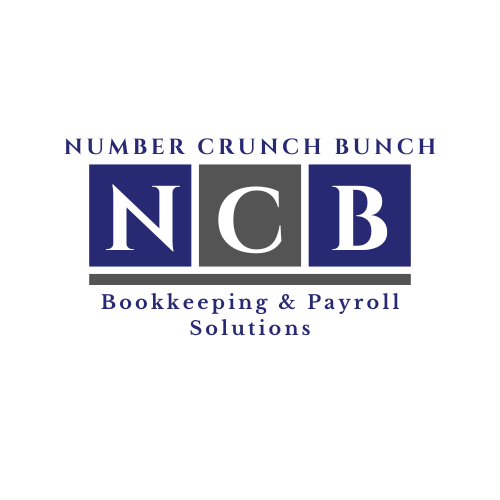Have you ever wondered what happens if you ignore bookkeeping for your business? Skipping bookkeeping might not send you to jail. But it can cause serious financial problems and missed opportunities.
Bookkeeping is essential for any healthy business. It provides clarity, helps you make better decisions, manages cash flow, and avoids costly mistakes.
In this blog, we will explore the risks of neglecting bookkeeping and share ways to fix these problems and stay on track.
Your Finances Are Left in the Dark
Without proper bookkeeping, your business finances become unclear. This creates risks of errors and costly decisions. Bookkeeping keeps track of your income, expenses, and cash flow. It shows you a clear picture of your business’s financial health.
Here’s what happens when you skip bookkeeping:
- Cash flow becomes messy: Overdue invoices, unchecked inventory, or forgotten expenses (like shipping costs) can go unnoticed.
- Break-even points are unknown: If you don’t track fixed and variable costs, you won’t know when your business becomes profitable.
For example, a small store owner noticed their profits shrinking. They didn’t know why. After hiring a bookkeeper, they discovered too much spending on untracked inventory. Fixing this problem helped them stabilize their business.
Limited Access to Financing
Without bookkeeping, your options for financing become limited. Lenders, investors, and partners need financial records to understand your business. These records show how stable and profitable your business is.
Here’s what can go wrong:
- No proof of financial stability: Lenders require financial statements, such as income or balance sheets. Without them, loan requests will likely be denied.
- Missed growth opportunities: Investors need to see updated records. Without proof of profitability, they won’t invest.
For example, a manufacturing company needed a loan to expand. However, it had no clear financial records, so the bank refused its application due to a lack of documentation. Six months later, it organized its books, and after reapplying, it got the loan it needed.
Loss of Hard-Earned Money
Ignoring bookkeeping can lead to unnecessary losses. Your business can lose revenue or pay more than needed.
Here are some common problems:
- Invoices are forgotten or delayed: Clients won’t remind you about unpaid bills. If you delay invoicing, cash flow suffers.
- Payroll errors occur: Without tracking payroll properly, you might overpay or underpay employees. This can create tax issues or disputes.
- Missed tax deductions: Improper tracking causes missed opportunities to claim business expenses. This means more money stays with the IRS instead of in your pocket.
For instance, a freelance writer tracked expenses on paper scraps. At tax time, they discovered they had missed valuable deductions, which cost them thousands of dollars.
Time-Consuming Catch-Up and Costly Errors
Neglecting bookkeeping creates a backlog of tasks. This wastes time and increases costs.
Here’s what can happen:
- Tax preparation becomes overwhelming: Searching for receipts and invoices at the last minute is stressful. It also distracts you from daily business operations.
- Higher accounting fees: Accountants charge more for sorting through messy, incomplete records.
One business owner ignored bookkeeping for a year. During tax season, they spent weeks sorting paperwork, time that could have been spent growing their business. Hiring a bookkeeper earlier would have saved them time and stress.
Increased IRS Scrutiny
Without bookkeeping, your business is at higher risk of IRS penalties or audits. Missing records and improper reporting can trigger red flags.
Here are some common issues:
- Unreported income: You must document all income to avoid IRS scrutiny.
- Incorrect deductions: Claiming large or incorrect deductions can lead to audits.
- Misclassified employees: Mislabeling workers as contractors or employees causes compliance problems.
For example, a small business claimed unsubstantiated deductions. They faced an IRS audit and had to pay large penalties. The owner admitted that proper bookkeeping could have prevented this.
How to Avoid These Risks
The good news is that these risks are preventable. You can protect your business by maintaining proper bookkeeping.
Here’s how:
- Hire a professional: A bookkeeping expert ensures accurate, up-to-date records.
- Use bookkeeping software: Tools like QuickBooks or Xero make tracking expenses and income easier.
- Be consistent: Spend time weekly updating your books to stay organized.
If your budget is tight, start small. Use free resources or simple systems until you’re ready to hire help.
The Bottom Line
Bookkeeping isn’t just an optional task. It’s a critical part of running a successful business. Proper bookkeeping helps manage cash flow, reduces tax burdens, and ensures compliance. It also helps you make better business decisions.
Don’t let poor financial records hold you back. If bookkeeping feels overwhelming, Number Crunch Bunch is here to help. We provide expert bookkeeping services virtually throughout the United States tailored to your business. Contact us today to simplify your finances and grow with confidence!

